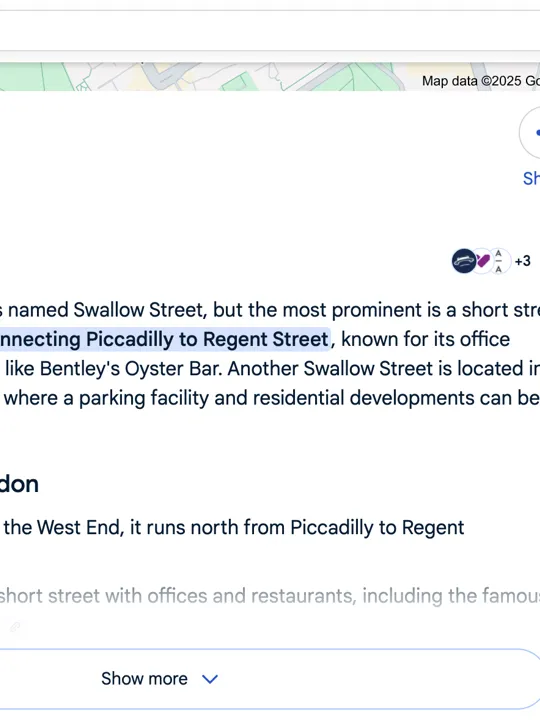SEO vs Generative Engine Optimisation (GEO)
Search is changing, and fast. With the growing popularity and usefulness of AI, we’ve seen huge changes within the industry. From streamlining processes to restaurant integration, and now search. The rise of AI-generated results and conversational search tools like Google’s AI Overviews, ChatGPT, and Perplexity means that traditional search engine optimisation (SEO) alone is no longer enough. To stay visible in today’s evolving digital landscape, hotels and hospitality brands need to adopt a new strategy: Generative Engine Optimisation (GEO).
In this blog, we’ll explain the difference between SEO and GEO, explore why both are now essential, and show how to combine the two to future-proof your brand’s online visibility.
What is SEO?
Search Engine Optimisation (SEO) is the process of improving your website’s visibility on traditional search engines like Google and Bing. When someone types a query into a search bar, e.g. “spa hotels in Devon”, SEO helps your web page appear on the results page, ideally near the top.
SEO involves:
-
Keyword targeting
-
Meta title and description optimisation
-
High quality, informative content
-
Internal linking and site structure
-
Page speed and mobile responsiveness
-
Backlinks and authority-building
The goal of SEO is to attract organic traffic to your website and guide users to book, enquire, or engage further. SEO is typically a long term strategy that just keeps gaining momentum the longer you stick to your strategy, and coupled with GEO efforts, can really strengthen your online presence.

What is GEO?
Generative Engine Optimisation (GEO) is the process of optimising your content so it gets referenced in AI-generated search results, such as those from Google’s AI Overviews or tools like ChatGPT. These platforms generate direct answers based on existing web content, structured data, and authoritative sources, and you want to be included in those.
The goal of GEO is to ensure your brand is named or quoted directly within those AI-generated responses. For example, someone might search:
“Where’s a romantic hotel with sea views in Jersey?”
Instead of displaying a list of blue links, the AI might respond:
“St Brelade’s Bay Hotel in Jersey is known for its coastal views and on-site spa, making it a popular choice for romantic getaways.”
While SEO provides numerous opportunities to appear at the top, with GEO, if your hotel isn’t mentioned in the answer, it’s missed entirely - even if your website ranks well in traditional SEO.
SEO vs GEO: Key Differences
SEO
-
Focuses on ranking pages in SERPs
-
Target search engines
-
Optimises for click-throughs to the site
-
Structured around keywords, metadata, and backlinks
-
Traffic is driven via clicks
GEO
-
Focuses on being cited in AI-generated answers
-
Targets AI tools (e.g. Google AI Overviews, ChatGPT, Perplexity)
-
Optimises for brand mentions in AI summaries
-
Structured around clarity, authority, structured data, and usefulness
-
Visibility comes via inclusion in AI responses, even without clicks

Why You Now Need GEO
AI search isn’t a distant concept; it’s already here and actively reshaping how users discover hotels, restaurants, and experiences. With the rise of tools like Google’s AI Overviews, traditional blue link search results are no longer the only way people find information. Instead, users are being served conversational summaries and AI-generated responses that pull from multiple sources. If your business isn’t optimised to appear in these AI outputs, you risk being left out of the conversation altogether.
Key reasons to adopt GEO:
-
AI-generated search is growing: Google’s AI Overviews are now live, and AI-first tools like Perplexity are gaining users fast
-
Traditional SERPs are shrinking: Fewer organic results are shown before AI answers, paid ads, and carousels
-
Clickless search is rising: AI gives direct answers. If you’re not part of the answer, you’re invisible, even with strong SEO
-
Brand citations build trust: Being referenced in AI summaries boosts credibility and drives bookings indirectly through exposure
How SEO and GEO Work Together
GEO doesn’t replace SEO; it builds on it. In fact, strong SEO is the foundation of good GEO and using the two together will yield the best results. AI tools still rely on authoritative, well-structured, and keyword-rich content to form their responses, and this is the very basis of good SEO.
SEO supports GEO by:
-
Ensuring your content is indexed, structured, and trustworthy
-
Building topical authority with consistent keywords
-
Attracting link clicks through search listings
GEO enhances SEO by:
-
Making your content AI-readable and likely to be cited
-
Enhancing brand reach beyond the website
-
Boosting brand mentions in high-visibility AI responses
Examples of GEO in Practice:
A guest asks, “Where is the best Art Deco hotel in the UK?”
→ AI pulls from your structured FAQ and says, “Burgh Island Hotel in Devon is a masterpiece of Art Deco style and living.”
A traveller asks, “Are there any spa hotels with private balconies in Jersey?”
→ Your landing page copy includes that phrase naturally, and AI cites your hotel.
To make that happen, you need:
-
Location-rich content
-
Schema markup (FAQ, LocalBusiness, Review)
-
Clear, concise copywriting that naturally blends in long-tail extensions of keywords
-
Questions and answers embedded in your pages
-
A strong brand presence across trusted third-party platforms
Conclusion: The Future of Search Is Dual-Tracked
To succeed in 2025 and far beyond that, you need to begin optimising for both search engines and generative engines. It’s not either/or, it’s both.
Traditional SEO still drives traffic, but GEO ensures you’re part of the conversation, even when users never leave the search tool. At Cab Hospitality, we’re already helping clients build strategies that blend these two disciplines, combining structured content, keyword strategy, and technical SEO with the clarity, authority, and structure needed for GEO.
If you want your hotel, spa, restaurant or venue to start showing up in AI-generated answers,
get in touch with us today and let Cab Hospitality future-proof your visibility.